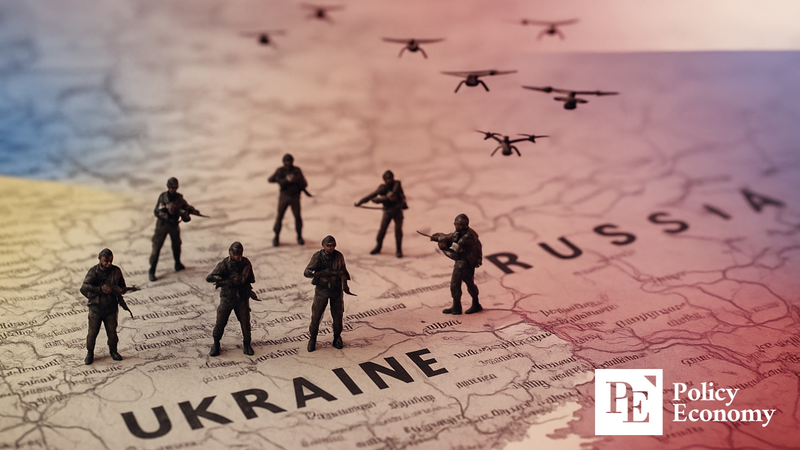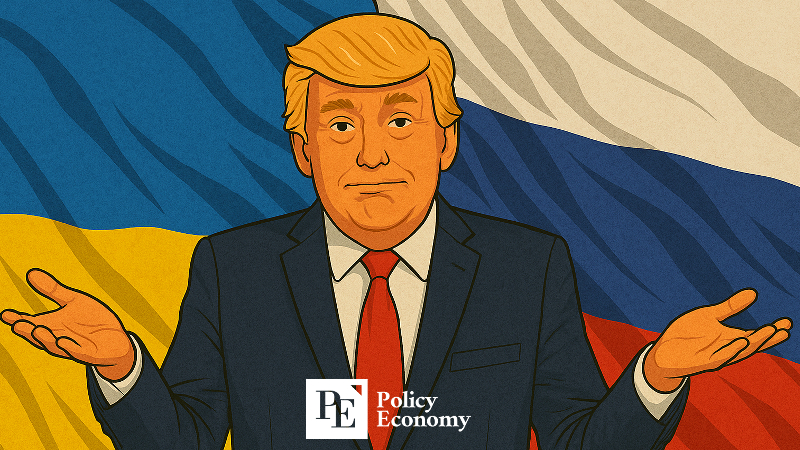Ukraine's "Spiderweb Operation" Drone Strikes Show Signs of Cracking 'Putin's Pride and Trump's Calculations'
Input
Modified
Drone attacks on four Russian Air Force bases Ukraine may be abandoning its strategy to undermine negotiations Trump's diplomatic card at risk of disappearing

The second round of peace talks between Russia and Ukraine, scheduled to take place in Istanbul, Turkey, is now at serious risk of falling apart. Ukraine's large-scale drone strikes, dubbed the "Spiderweb Operation," precisely targeted Russian strategic bases, wounding the pride of the Putin regime and intensifying the conflict between the two nations. With U.S. President Donald Trump—who has long presented himself as a peace mediator—now likely to pull out from the issue, the entire negotiation process risks collapsing and returning to square one.
USD 7 Billion in Damages Hits Russian Prestige
On June 1 (local time), the Kyiv Independent reported that Ukraine’s Security Service (SBU) launched a major drone strike on four Russian Air Force bases within Russian territory. The targeted bases included Belaya in Irkutsk, Olenya in Murmansk, Dyagilevo in Ryazan, and Ivanovo in Ivanovo. Reports indicate that 41 Russian strategic bombers were damaged. The estimated cost of the damage stands at around USD 7 billion, according to the SBU.
Citing internal sources, the media reported that the SBU transported first-person view (FPV) drones into Russia, concealing them inside mobile wooden boxes loaded on civilian trucks. At the right moment, the drones were remotely activated and deployed to strike strategic bombers. Ukrainian President Volodymyr Zelensky reportedly directed the attack himself, which took around 18 months to prepare. The operation was named “Spiderweb.”
Russia presented a conflicting account. The Russian Ministry of Defense acknowledged attacks on five air bases, claiming it repelled all but two, including Irkutsk. It admitted minor aircraft damage and reported arrests of several individuals involved in the attacks. Still, international media note that Russia's admission of a precision strike on key military bases severely damages President Vladimir Putin’s image as a strong leader.
Russia’s Anger, Ukraine’s Silence
With tensions rising, the scheduled second round of peace negotiations in Istanbul now appears likely to be canceled. Russia had unilaterally informed Ukraine of its intention to hold the talks at Istanbul’s Çırağan Palace on June 2 at 1 p.m., shortly after rejecting Ukraine’s call for a trilateral summit that included the United States. The move was seen as an effort by Russia to dictate the terms and timing of the talks to its own advantage.
Ukraine had formally confirmed its participation and sent over a document outlining its peace terms. These included a full and unconditional 30-day ceasefire, the exchange of all prisoners of war, and the repatriation of Ukrainian children taken to Russian-occupied territories. It also proposed using the current frontlines as the starting point for territorial negotiations, with a summit between Zelensky and Putin to follow.
These proposals differ significantly from Russia’s long-stated demands, which include Ukraine's renunciation of NATO membership and international recognition of Russia’s control over occupied Ukrainian territories. Russia has yet to provide an official response and planned to reveal its position on the day of the negotiations.
In this context, Ukraine’s drone strikes are widely interpreted as a de facto withdrawal from diplomatic efforts. The timing, method, and targets of the operation are all seen as undermining the likelihood of negotiations. The fact that Ukraine launched the attacks without offering any diplomatic clarification or messaging suggests a deliberate distancing from not only Russia but also from international mediators.
As the possibility of talks collapses, Europe is reacting sensitively. France and Germany reportedly reached out via unofficial channels to revive the dialogue, but Russia dismissed any talk not on its terms. Ukraine, meanwhile, reiterated its stance that no talks can proceed without addressing accountability for war crimes first.

Trump Gains an Excuse to Exit Mediation Role
The potential collapse of talks in Istanbul sends a negative signal to international actors who had hoped to mediate the conflict. Chief among them is U.S. President Donald Trump, who has repeatedly claimed that the war would never have started if he had been in office. He has shown a consistent interest in acting as a peace broker.
However, Ukraine's high-intensity drone strikes just before the talks, and Russia's interpretation of them as a clear provocation, have shattered any remaining justification for Trump’s mediation efforts.
For Trump, calling for an end to the war has been more than diplomacy—it has been a key strategy to reinforce his image as a “strong leader.” But the current climate offers little room to maneuver. Getting involved now risks failure without payoff. Analysts suggest that from Trump's perspective, it’s smarter not to get involved at all than to risk a fruitless intervention.
The geopolitical landscape no longer favors him. President Putin sees the war as a matter of pride, not diplomacy. President Zelensky has shown resistance to one-sided U.S. approaches. Other issues—like Israel or North Korea—where Trump might have intervened through personal diplomacy are also at a standstill. Strategically, Trump has fewer openings than ever.
In this context, Trump's likely decision to walk away from his mediator role appears to be a calculated withdrawal from a politically disadvantageous situation. With the Russia-Ukraine negotiations on the verge of collapse, any forced attempt at diplomacy risks being seen as empty interference. Many experts believe the "Trump factor" in the war will now quickly fade.





















